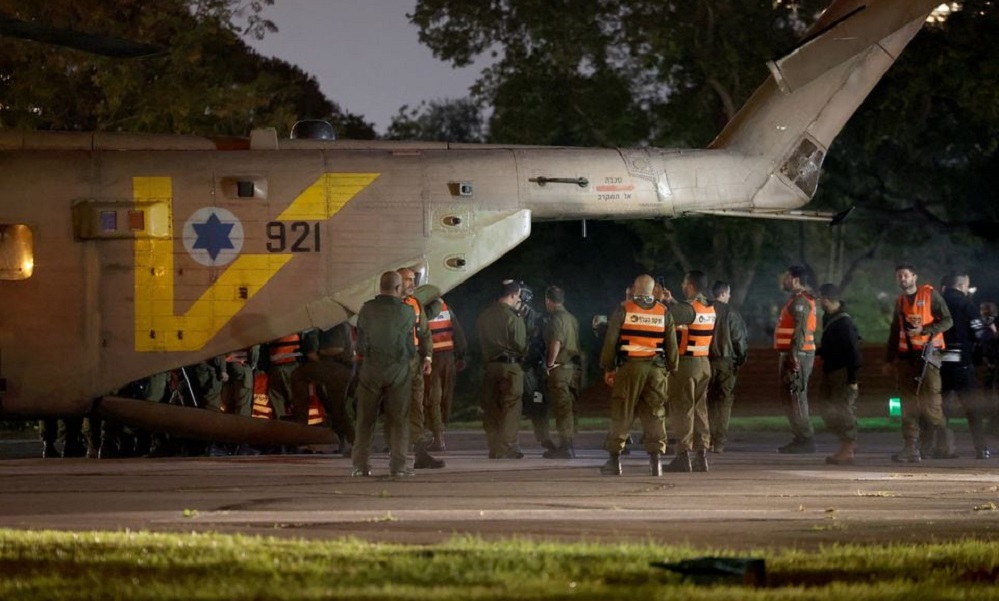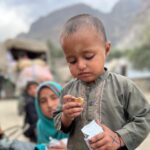Israel has received a list of hostages to be freed from Gaza on Saturday by Hamas, officials said, following the release of 24 hostages the previous day, the first of a planned four-day truce.
Israeli security officials were reviewing the list, the office of Prime Minister Benjamin Netanyahu said in a statement, after his government’s vow to work for the release of all hostages taken by Hamas in an attack on Israel on Oct. 7, Reuters reported.
The pause in the fighting was the first such break, with both sides saying hostilities would resume as soon as the truce ends. U.S. President Joe Biden expressed hope the pause could be extended, however.
The released hostages, including Israeli women and children and Thai farm workers, were transferred from Gaza and handed to Egyptian authorities at the Rafah border crossing, along with eight staff of the International Committee of the Red Cross in a four-car convoy, the organisation said.
They were then taken to Israel for medical checks and re-unions with relatives.
Qatar, which acted as mediator for the truce deal, said 13 Israelis had been released, some with dual nationality, as well as 10 Thais and a Philippine national – farm workers employed in southern Israel when they were seized.
Thirty-nine Palestinian women and children detainees were released from Israeli jails. The freed Israeli hostages included four children accompanied by four family members, and five elderly women.
Biden said there was a real chance of extending the truce, adding that the pause was a critical opportunity to get humanitarian aid into Gaza.
He declined to speculate how long the Israel-Hamas war would last. Asked at a press conference what his expectations were, he said Israel’s goal of eliminating Hamas was legitimate but difficult.
The Palestine Red Crescent Society said 196 trucks of humanitarian aid carried food, water and medical supplies through the Rafah crossing on Friday, the biggest such convoy into Gaza since Hamas’ assault on Israel and Israel’s subsequent bombardment of the territory.
About 1,759 trucks have entered the narrow enclave since Oct. 21, it added.
The families of the hostages expressed mixed emotions, fearing for those left behind, Reuters reported.
“I’m excited for the families who today are going to hug their loved ones,” Shelly Shem Tov, the mother of Omer Shem Tov, 21, said in an interview with Israel’s Channel 12, although he was not among those released on Friday.
“I am jealous. And I am sad. Mostly sad that Omer is still not coming home.”
Israeli tallies show Hamas fighters killed 1,200 people in the October attack and took about 240 hostages. Since then, Israel has rained bombs on the Hamas-ruled enclave, killing about 14,000 Gazans, roughly 40% of them children, Palestinian health authorities say.
Hundreds of thousands of Gaza’s 2.3 million people have fled their homes, including most of those in its northern half.
After initial medical checks, the released hostages were taken to be reunited with their families. Medical authorities said they appeared to be in good physical condition and were facing more evaluations.
Roni Haviv, a relative of Ohad Munder, said she was looking forward to giving the nine-year-old his favorite toy.
“I’m waiting to see Ohad and can’t wait to give him his Rubik’s Cube, which I know he really loved and he probably missed it so much, and that’s the first thing he takes everywhere he goes,” she said.
Those released on Friday were exchanged for 24 jailed Palestinian women and 15 teenagers. In at least three cases, before the prisoners were released, Israeli police raided their families’ homes in Jerusalem, witnesses said.













